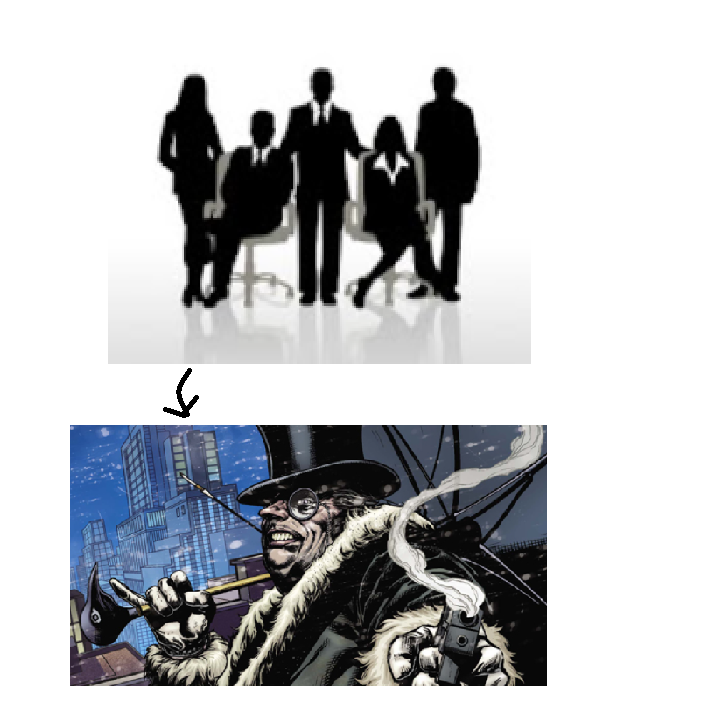Re City Equitable Fire Insurance Co [1925] Ch 407
Citation:Re City Equitable Fire Insurance Co [1925] Ch 407
Rule of thumb:Are directors personally responsible for acts of fraud carried out by other directors & managers? No, not unless it can be proven that it was obvious.
Judgment:
The facts of this case were that the company chairman carried out a fraud whereby he was steadily writing cheques for £1.2 million to be withdrawn from the company for his own ends – in 1925 £1.2 million was worth 100 times that amount in today’s money. Shareholders sued the other directors arguing that it was negligent not to pick up that the company chairman was doing. The directors argued in their defence that they had trusted the chairman and had given him scope to do his job in full confidence, and once it became patently clear that he was not doing his job properly, this was when measures were taken to remove him. The Court held that the other directors were not liable – the Court applied the test that directors do not need to bring more skill than the ordinary person, and that they are generally very busy who are allowed to trust people until evidence of untrustworthiness comes to the fore, and they stated that in this case the directors had not breached their duties. The Court held that (i) the directors were only bound to operate to the standard which would be expected of a reasonable and ordinary in the same position – there was no onus on them to bring any skill to the position other than that which the common man on the street would bring. (ii) The Court also held that the company directors are generally very busy people, meaning that it would take them some time to pick up any wrongdoing in the company. (iii) The Court further held that they are entitled to trust people until there is evidence to prove otherwise.
Ratio-decidendi:
‘There are, in addition, one or two other general propositions that seem to be warranted by the reported cases: (1.) A director need not exhibit in the performance of his duties a greater degree of skill than may reasonably be expected from a person of his knowledge and experience. A director of a life insurance company, for instance, does not guarantee that he has the skill of an actuary or of a physician. In the words of Lindley M.R.: "If directors act within their powers, *429 if they act with such care as is reasonably to be expected from them, having regard to their knowledge and experience, and if they act honestly for the benefit of the company they represent, they discharge both their equitable as well as their legal duty to the company": see Lagunas Nitrate Co. v. Lagunas Syndicate.[2] It is perhaps only another way of stating the same proposition to say that directors are not liable for mere errors of judgment. (2.) A director is not bound to give continuous attention to the affairs of his company. His duties are of an intermittent nature to be performed at periodical board meetings, and at meetings of any committee of the board upon which he happens to be placed. He is not, however, bound to attend all such meetings, though he ought to attend whenever, in the circumstances, he is reasonably able to do so. (3.) In respect of all duties that, having regard to the exigencies of business, and the articles of association, may properly be left to some other official, a director is, in the absence of grounds for suspicion, justified in trusting that official to perform such duties honestly. In the judgment of the Court of Appeal in In re National Bank of Wales, Ld,[3] the following passage occurs in relation to a director who had been deceived by the manager, and managing director, as to matters within their own particular sphere of activity: "Was it his duty to test the accuracy or completeness of what he was told by the general manager and the managing director? This is a question on which opinions may differ, but we are not prepared to say that he failed in his legal duty. Business cannot be carried on upon principles of distrust. Men in responsible positions must be trusted by those above them, as well as by those below them, until there is reason to distrust them. We agree that care and prudence do not involve distrust; but for a director acting honestly himself to be held legally liable for negligence, in trusting the officers under him not to conceal from him what they ought to report to him, appears to us to be laying too heavy a burden on honest business men." Romer J.

Warning: This is not professional legal advice. This is not professional legal education advice. Please obtain professional guidance before embarking on any legal course of action. This is just an interpretation of a Judgment by persons of legal insight & varying levels of legal specialism, experience & expertise. Please read the Judgment yourself and form your own interpretation of it with professional assistance.

